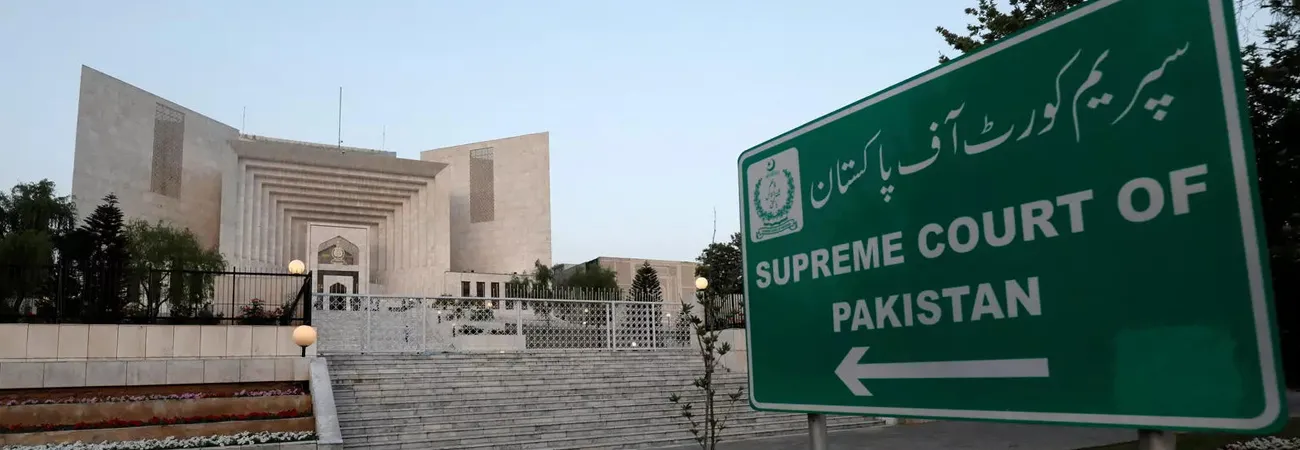i NEWS PAKISTAN
The Supreme Court (SC) on Friday struck down the Supreme Court (Review of Judgments and Orders) Act 2023, which expands the scope of a review petition. A three- member SC bench had reserved its verdict in the case on June 19 with an observation that decision on the case would determine the fate of the Election Commission of Pakistan’s (ECP) review against April 4 verdict of fixing May 14 as the date for holding Punjab Assembly elections. The CJP had also observed that the court welcomes and accepts that there should be remedy to the orders and judgements issued under Article 184(3) but such remedy should be crafted in accordance with the constitution by adding valid grounds rather than ordinary legislation. Why the government should not consider giving definition of the public importance an important ingredient while invoking petitions under Article 184(3), he wondered.
The Supreme Court approved the constitutional petitions against the new law granting right of appeal against the paex court decisions. The chief justice remakred that the parliament had no power to enact such a legislation. The CJP further remarked that the act was against the Constitution. It is learnt that the court had on Thursday sent electronic notices to the parties to the case for announcement of judgement on Friday. Ghulam Mohiuddin, Zaman Khan Vardak, the Jurists Foundation, through its CEO Riaz Hanif Rahi, and the Pakistan Tehreek-e-Insaf (PTI) had challenged the vires of the act. The apex court held six hearings from June 7 to 19 on petitions challenging the law, enacted in May. Attorney General for Pakistan (AGP) Mansoor Usman Awan had asked the court to dismiss the pleas against the law, explaining that it broadens the court's jurisdiction and does not curb its powers.
However, PTI lawyer Ali Zafar had argued that a change in the Supreme Court's powers could not be made through legislation alone and required a constitutional amendment. It was worth mentioned here that the bill was passed by Parliament on May 5 amid a tussle with the judiciary. The bill, brought to the House through supplementary agenda, was moved by Senator Irfanul Haque Siddiqui, who is believed to be a close confidant of PML-N supremo Nawaz Sharif. The House had allowed its immediate consideration with a majority vote of 32-21. The government had claimed that the bill was aimed to facilitate and strengthen the Supreme Court in exercise of its powers to review judgements and orders.
However, the opposition saw it as an attempt to reverse the disqualification of PML-N supremo Nawaz Sharif. It should be noted that apex court’s verdict comes a day after Prime Minister Shehbaz Sharif said Nawaz Sharif would return to Pakistan next month, though he didn’t give an exact date. Called the Supreme Court (Review of Judgements and Orders) Act 2023, the law is aimed at facilitating and strengthening the SC in the exercise of its powers to review its judgements. The act asked to enlarge the jurisdiction of the apex court as expressly provided under Article 188 of the Constitution, which empowers the apex court to review any judgement and to ensure the fundamental right to justice by providing for meaningful review of judgments and orders passed by the SC in the exercise of its original jurisdiction under Article 184(3).
Under Section 2 of the act, the scope of the review, on both facts and law, will be the same as an appeal under Article 185 of the constitution. Section 3 says that a review petition will be heard by a bench larger than the bench which passed the original judgement or the order. Likewise, Section 4 empowers the petitioner filing review to appoint any advocate of the Supreme Court of their choice for the review petition. It may be recalled that a verdict on the petitions will revive the political careers of former premier Nawaz Sharif and Istehkam-e-Pakistan Party (IPP) chief Jahangir Tareen who have been disqualified to contest elections.
Credit: Independent News Pakistan (INP)









